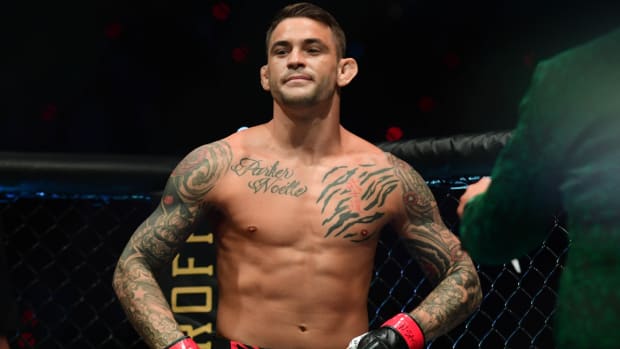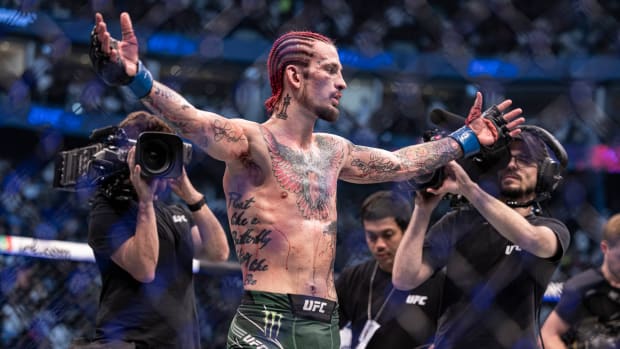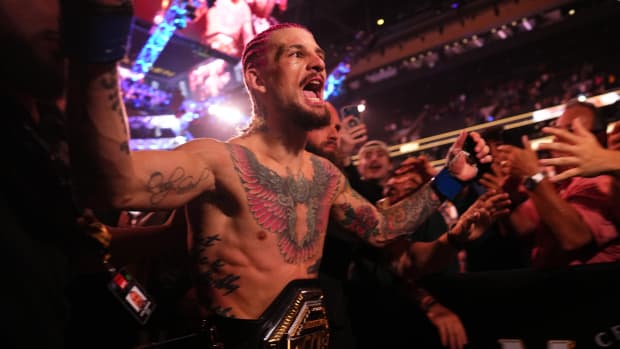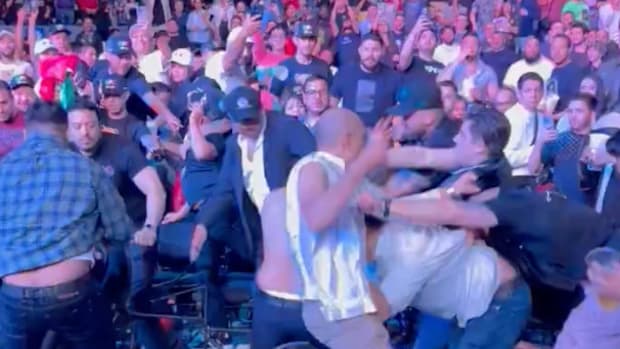UFC manager Ed Soares bringing fighter's perspective to RFA promotion
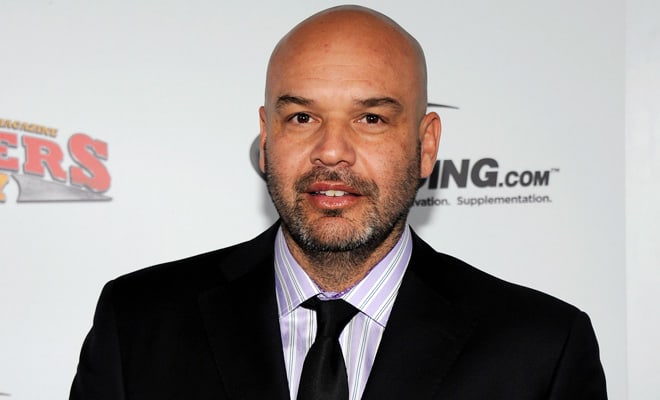
. Ed Soares was named the president of Resurrection Fighting Alliance in August 2012.
Ethan Miller/Getty Images
Longtime MMA manager Ed Soares realized just how hard his new job as president of the upstart Resurrection Fighting Alliance would be as he stood at a Kansas City arena last January, hours before the start of his second show, when a staff member walked up to him with a bill. Four hundred dollars, he looked at the total, for ice?
"What kind of ice is it," Soares asked the staffer, "golden ice?"
Over the course of the event weekend, Soares learned all about the nitty gritty involved with promoting a show, from making sure the fighters have towels in the locker rooms, to airport pickups, to, yes, even ice. Lots and lots of ice for everything from vending booths for the fans to the medical needs of the fighters.
"It's not as easy as it looks," Soares says of the promotion business. "People tend to look at the final result, what they see is the night of the event, and they see it go well, but what they tend not to see is all the little details to make that event successful."
Soares, 41, is no stranger to MMA, of course. He's best known to fight fans as the longtime manager of the likes of top-shelf fighters like middleweight champion and No. 1 ranked pound-for-pound fighter Anderson Silva and No. 1-ranked light heavyweight contender Lyoto Machida. But last fall the noted manager assumed the helm of the fledgling Resurrection Fighting Alliance (RFA), a Nebraska-based company. The RFA hosts its seventh show Friday night from the 1st Bank Center in Broomfield, Colo., featuring rising welterweight Brandon Thatch (8-1) against Mike Rhodes (4-0), a teammate of Anthony Pettis. RFA 7 will be the first fight card fully produced by Soares and Ring of Fire promoter Sven Bean.
"I've been doing the managing thing since 2004, 2005. Not that I don't like it any more, I just wanted something new to stimulate me," Soares says of his decision to add the RFA presidency to his managing duties. "The experience I gained from being a manager, from being on the other side of the fence, I thought that would make me a better promoter because I understand a lot of the concerns that the managers and fighters are coming from."
The Redondo Beach, Calif., native grew up watching boxing's most promising prospects on Friday Night Fights at the Forum and the USA network's Tuesday Night Fights. He says the RFA isn't trying to compete with the UFC as much as it will try to complement it by providing a pipeline of seasoned fighters to the octagon. Soares sees UFC president Dana White not as a rival as much as a mentor in the promotion business.
"The RFA is not a destination league. When a guy becomes a fighter, I can guarantee you that there's not one fighter who says, 'My goal is to become the RFA champion of the world.' No. Their goal is to become a UFC champion of the world," says Soares. "I see the RFA as a developmental league, or a minor league for the UFC. There's no one really filling that void."
The first order of business for Soares when he took control of the RFA was negotiating a national television contract to broadcast its fights. In AXS TV, already home to programs like Inside MMA, he found a willing partner.
"It's such a big step to go from a small promotion to the UFC," he says. "To going from fighting in your hometown with 1,000 people to going from that, to the UFC, where you're walking into an arena with 15,000, 20,000 people, lights, cameras. Your fight's being watched by millions of people. It's a big step."
The national TV exposure not only helps the fighters but also the UFC, argues Soares, because the athletes have already started developing their brands and following among fans before reaching the UFC stage.
The TV deal was the first reason MMA trainer and owner of Las Vegas's One Kick gym, Nick Blumgren, cited for placing prized prospect Chidi Njokuani -- younger brother of UFCer Anthony Njokuani -- on the RFA 7 undercard. The second? Contract flexibility.
As a longtime fight manger, Soares saw the value of mixing the stability of a five-fight contract with the flexibility of an out-clause in his fighters' RFA deals should the UFC beckon. "Our contracts aren't the kind that tie people up," he says. "If the UFC comes in and offers you a contract, we'll let you out of our contract."
Soares cites Pettis' little brother, Sergio, an up-and-comer on the fight scene, as Exhibit A of the league's willingness to work with fighters. When Sergio's fight on the RFA 7 card was cancelled because of an injury to his opponent, the RFA green-lighted Sergio to fight at a Milwaukee-area show arranged by Pettis' trainer, Duke Roufus. "Me being a manager, me being on the side of the fighters, I realize these guys have to make a living," says Soares. "We said take the fight."
Detractors, however, question Soares' ability to manage fighters and promote fights simultaneously. The promoter-manager says that he declines to take commissions from his fighters' purses so that he's not paid as a manager and again as a promoter. Currently, Soares represents three fighters signed to the RFA.
"There's no monkey business," he says. "We're sanctioned by the athletic commissions. People can come up with these conspiracy theories, but at the end of the day it's pretty transparent what we're doing. We're just trying to give fighters opportunities."
Regardless, the RFA has three fighters in its stable who appear poised to receive UFC bids should they win their Friday fights -- Thatch, Mirsad Bektic and Njokuani. Should any of these fighters move up, Soares and his team will not mourn their departures as much as celebrate the fighters' successes. They might even pop open a few brews to celebrate. After all, Soares has learned to have plenty of ice on hand to keep them cold.

